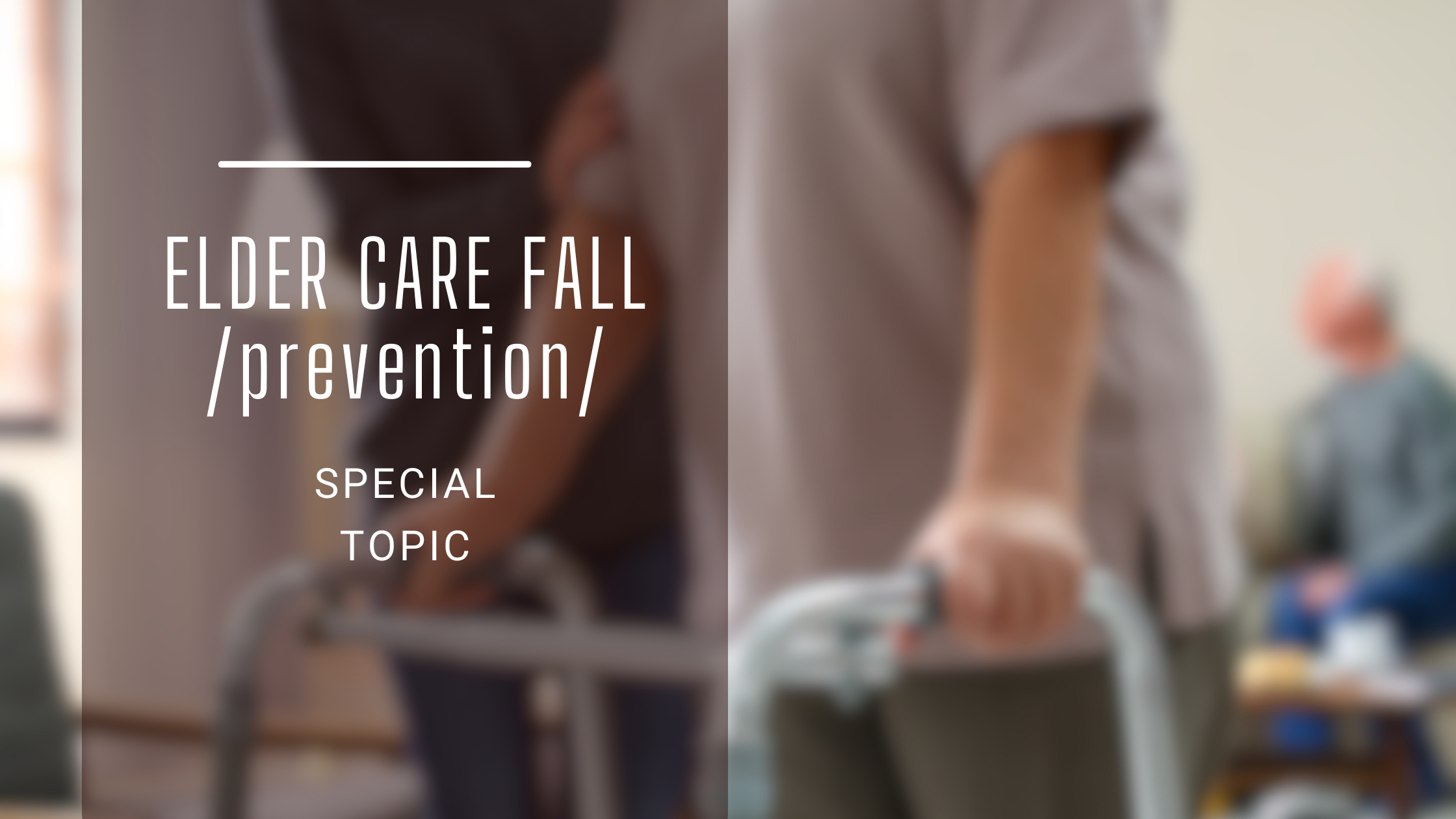Special Topic - Fall Prevention

FALL PREVENTION FOR THE ELDERLY AND STRATEGIES TO KEEP THEM SAFE
The CDC (Centers for Disease Control) reports that:
- Falls are the leading cause of injury in adults 65 and older.
- Showing 14 million adults fall each year.
- Among seniors, almost 80% of falls in the home occur in the bathroom.
- Lead to more serious injuries when they occur, traumatic brain injuries, bone fractures, muscle injury from long periods of immobility when unable to get up, and death.
What Causes Falls in Older Adults?
Anyone can slip and fall, but older adults are more prone to falling because:
- Aging affects our muscle strength and flexibility, making it more challenging to maintain balance and stability.
- More likely to have chronic conditions that affect their mobility, coordination and overall stability.
- Age related vision changes and hearing loss can make it harder to navigate and identify potential hazards.
- Partial or total loss of hearing or vision.
- Decline or loss of nerve function, such as sensations in the feet.
- Muscle loss or impaired muscle function.
- Reduction in bone strength
- Challenges with brain coordination.
- Impact on thinking due to memory loss related to Alzheimer’s disease and other dementia.
How to Prevent Falls in Older Adults: Health Tips
- Maintain a regular exercise routine. Focus on upper arm strength as well as legs.
- Use physical therapy to gain or maintain balance
- Support brain and heart health. Follow a nutritious diet of meat, fish, eggs, milk, fruit and vegetables. Multivitamins with Vitamin B12 or Vitamin B12 supplements for Vegan or Vegetarians.
- Check Vitamin levels because healthy vitamin levels support balance. Deficiencies in Vitamin B12 may increase fall risks by causing nerve dysfunction in the feet, as well as decrease in other neurological functions.
- Deficiencies in Vitamin D3 increases risks for bone fractures.
- Avoid or reduce alcohol consumption because alcohol can affect decision making as well as affect your balance. Alcohol also interrupts the absorption of Vitamin B12 from the stomach. Anything more than a drink a day increases the risk of falls.
- Take inventory of your medication use and over the counter medications as some of these can affect your balance. Rise slowly from a sitting position if you take blood pressure medications.
Fall Prevention: 7 steps to Prevent Falls at Home
- Clear pathways of clutter and remove trip hazards like extra furniture and boxes and rugs. Use double-sided tape under throw rugs.
- Add adaptive equipment like handrails, shower chairs and raised toilet seats
- Put daily use items in easy-to-reach places to avoid the need for ladders or step stools.
- Wear a fall detection device and do not leave it in a jacket pocket or purse.
- Install night lights
- Wear sensible shoes with nonskid soles.
- Avoid wearing socks on hard wood floors, instead choose house shoes with nonskid soles.
What to Do If You Fall:
The National Institute on Aging recommends taking the following steps:
- Take deep breaths. This can help you relax.
- Before you get up, decide if you are hurt. Don’t get up too fast if you are hurt.
- If hurt, stay put and call for help. You can do this verbally, or through a life-alert device or smart watch if you are wearing one. Dial a loved one on the phone if accessible or call 911 and wait for help. Use voice activated devices to call for help.
- If you are OK to move, move slowly. The NIA Recommends slowly rolling to your side, resting then crawling on your hands and knees to a sturdy chair. When getting onto the chair, put your hands on the chair first and position your body in a kneeling position with one knee down and one foot flat on the floor, before slowly rising yourself up to the chair.
- Make sure a trusted family member or friend has access to your home so that they can get in the home to assist you.
References: The U.S. News Health Team: William Buxton, MD., Board Certified neurologist and director of neuromuscular and neurodiagnostic medicine and fall prevention at Pacific Neuroscience Institute in Santa Monica, California. Esiquio Casillas MPH MD-Chief medical officer for the AltaMed Health Services Program of All Inclusive Care for the Elderly, or PACE, in the Los Angeles Area.
